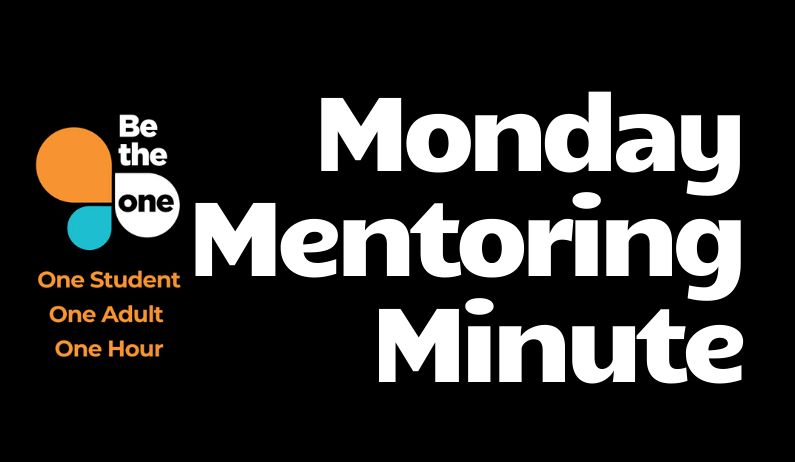BE ENCOURAGED
It’s wonderful to be able to see student growth in big and small ways. Recently I shared a great compliment with a mentor from one of the student’s teachers. The teacher went out of his way to say:
“Robert has been doing so well this semester: Not just with his class work, but his overall soft skills, too. He says hi when he walks in the door, he asks questions as the class moves along, and he starts conversations with me and others. What a great student! Great job to his mentor and everyone who has had an impact on him this last year.”
The mentor and I were able to reflect on how much Robert’s confidence has grown in the time they have been working together.

Planting Seeds
As we continue our conversation about expectations and mentoring, we’re going to turn our focus to expectations that are more helpful to our mentoring experience. Healthy mentoring expectations generally reflect a more long-term approach to mentoring. These expectations reflect the “planting seeds” analogy that we used in last week’s Mentoring Minute. Planting seeds takes work to get the seed in the ground and then consistent care and patience before you begin to see the product of that seed. In the same way, a healthy mentoring relationship takes work to get started. Results aren’t often seen right away, so consistent care and patience is something all mentors need to be committed to from the beginning. With that in mind, let’s take a look at some realistic (positive) expectations that should shape our mentoring experiences.
“My success as a mentor isn’t measured by the success of the student I mentor.”
“I may make mistakes as a mentor, but that doesn’t mean that I can’t make a positive impact in a student’s life.”
“I may not see progress right away, but that doesn’t mean that nothing is happening in a student’s life.”
The reality of working with students in any role (parent, teacher, mentor, coach) is that you can do everything right, and still not see success. There are a lot of other factors involved in whether or not a student will thrive after high school (primarily his/her own choices and behaviors). At the same time, we can’t expect to be the perfect mentor all of the time either. We may take the wrong approach with a student or say the wrong thing sometimes, but that doesn’t mean that we’re not making a difference in their life. As mentors, we need to model resilience to our students when things aren’t going the way we think they should. And, we need to show them what perseverance looks like when it seems like nothing is happening.
–Jason Matthews, BTO Mentor Coach

